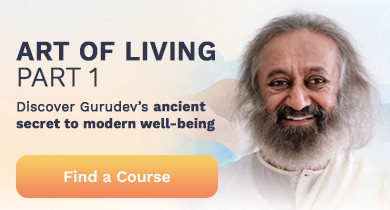By Josette Aggarwal | Posted: September 13, 2019
“Don’t let the noise of other’s opinions drown out your own inner voice. And most important, have the courage to follow your heart and intuition. They somehow already know what you truly want to become. Everything else is secondary.”
-- Steve Jobs, 2005 Stanford commencement address
What is intuition?
Intuition, simply put, is having the right thoughts at the right time. Intuition can also be described as a subtle thought, impulse, or flash. Although we may sometimes ignore this inner communication, success in many of life’s endeavors depends on it. Through meditation and other specific processes, intuitive thoughts become more clear.
The 3 Sources of Knowledge:
1. Our five senses
Our five senses are the most common source of our knowledge. Gaining knowledge through our five senses is the simple process of taking in data through the senses to form conclusions. For example, if we smell chocolate chip cookies, we know they are probably close by.
2. Our intellect
Knowledge gained by the intellect is the second most common source of knowledge. This knowledge is superior and more accurate than knowledge gained through the five senses. Science is based on this type of knowledge. For instance, our sense of sight might tell us that the sun is setting, but through scientific data, we know that the sun does not actually “set”, but that the earth is turning in space as it orbits the sun.
3. Our Intuition
Knowledge that is beyond the five senses and the intellect comes from the spirit. Often this knowledge does not make logical sense, and cannot be proven or even understood by the intellect. This is another level of knowledge.
Developing Intuition
Everyone has intuitive ability - if only in seed form. Unfolding these intuitive skills is easier for children, because their minds are fresh and free of impressions. Daily meditation and intentionally tuning into subtle intuitive thoughts can help develop this ability.
The 5 Benefits of Intuition
1. Creativity
Many artists and writers talk about the role intuition plays in the creative process. Author JK Rowling said that the story of Harry Potter “came to me rather than the other way around”. Accessing information through intuition can foster creativity in writing, art and other areas of life.
2. Decision Making
Intuition allows us to see the best decision or action to take in any situation. This skill is needed in all sectors of life. People in diverse professions rely on intuition in addition to intellectual and sensory knowledge. Dealing with people, making investments, creating art, and treating patients all require the use the intuitive sense.
A study conducted at the University of Amsterdam separated prospective car buyers into two different categories. In the first group, subjects were given time and instructed to research information about cars they might potentially purchase. The second group of subjects did not take time to research their options but instead made quick intuitive decisions. The group that did extensive research were only happy with their purchase 25% of the time while the intuitive decision makers were satisfied 60% of the time.
3. Access to Information
Through intuition people can gain knowledge of subjects they have not formally studied. In some cases, adults and children have been able to understand and speak new languages, play musical instruments, and understand intellectual concepts they were not previously familiar with.
4. Innovation
The combination of intellect and intuition is needed when coming up with new inventions, starting a company, or improving existing products. Einstein explained, “The intuitive mind is a sacred gift and the rational mind is a faithful servant. We have created a society that honors the servant and has forgotten the gift.” To make progress in science, society, or life, we need to remember this gift.
5. Connection
Developing intuition helps us to realize our connection to others and the world around us. This realization manifests as friendliness, compassion, and caring towards others. People of all ages are far more likely to make an impact on the world when they feel a sense of connection.
Intuition and the Brain
There are two distinct parts of the brain: the right brain, which is responsible for intuition and relies mainly on the subconscious to act quickly and instinctively, and the left brain, which relies on the conscious but slower analytical process. Conclusions made by the instinctual right brain happen quickly and often seem irrational. However, research suggests that the right brain often knows the correct answer long before the left brain.
In a study conducted at Cornell University, a computerized picture behind one of two different curtains was generated. Subjects would predict which curtain the image was behind. In the majority of cases, subjects were able to predict the correct curtain 2-3 seconds before the computer had even generated the answers.
The Intuition Process
The Intuition Process, also known as Prajna Yoga, can help students hone into their intuition. This two-day workshop allows children to develop their full potential by fostering creativity, sports ability, writing, intellectual skills and academic excellence. When learned at a young age, children are able to maintain these skills into adulthood.
Developing a society that is compassionate, happy, and healthy can be our future. Tapping into the layers of our consciousness to discover new abilities and talents, becoming confident and courageous, tomorrow’s adults will be able to handle any situation with positive thinking and better physical and mental health.
Find more about the Intuition Process Workshop here.
As mentioned before, meditation helps tremendously in enhancing intuitive abilities. If you have never tried meditation before, join Beyond Breath, a free online guided meditation session with a live instructor. You will also learn some breathing techniques.
Josette brings over 20+ years of experience in managing teams and program management for international projects as well as led large scale public events globally. She holds a BA in English Literature & Mass Communications from the University of Berkeley and an MS in Education from the University of Southern California. She can be followed on Instagram.





























